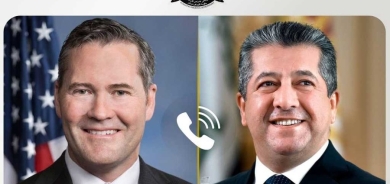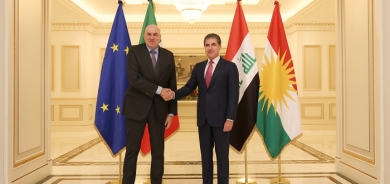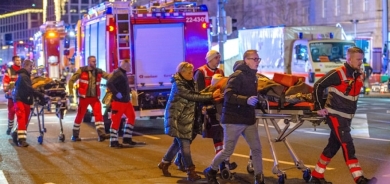Joost Hiltermann to Gulan: The unity of Iraq is threatened not by the withdrawal of US forces but by the failure of Baghdad and Erbil to find a peaceful resolution to their disputes
November 23, 2011
Exclusive Interviews

The Professor Joost Hiltermann is the Deputy Program Director, Middle East and North Africa, The International Crisis Group. We have contacted the Professor Hiltermann to take his views and opinions regarding to the withdrawal of the US Forces from Iraq and the probable risks upon the future of the country, and the Professor Hiltermann have replied to our questions in an exclusive interview to Gulan Magazine as the following:* The mission of US in occupying Iraq was to make a democratic, federal and a model country out of Iraq for the whole area, but after 8 years in spite of not having the mission succeeded, US is currently withdrawing from Iraq and there is the risk that the withdrawal endangers the security situation of Iraq. So, if Iraq's situation becomes unstable, to what extend it is going to be a space for terrorists?
- It's not at all clear that Iraq would become more unstable as a result of the withdrawal of US troops. The primary threat to the Iraqi state is the fragility of the state itself, and the profound lack of trust between the political factions, as well as politicians' inability to see beyond their personal and partisan interests and outline a vision and program for the country as a whole.
* On the regional and neighboring countries' level we see that these countries are not going to accept to let Iraq become a space for terrorists. So, to what extend Iraq will be a ground of external interfering after the withdrawal of US forces?
- I don't see any immediate prospect for external military intervention in Iraq. And contrary to what you say, neighboring states have exploited Iraq's current state of weakness to support insurgencies in Iraq. They will continue to do so if it serves their interests.
* The situation of Syria is also leading toward violence, if the situation of Iraq also leads toward violence, how far Iraq and Syria, together, will become threats to the international security?
- I don't see Iraq becoming a threat to international security any time soon. Syria is another matter.....
* There are many problems still going on in Iraq, in which their resolution requires presence of a force like US forces on the ground so as to allow the resolution of the problems easily, which are the problem of Kirkuk and disputed territories. So, according to your opinion; to what extend will these problems threaten the unity of Iraq after the withdrawal of US forces?
- The unity of Iraq is threatened not by the withdrawal of US forces but by the failure of Baghdad and Erbil to find a peaceful resolution to their disputes. The US troop presence has done absolutely nothing to help the parties reach a solution so far (after more than eight years) and indeed arguably has contributed to a deepening of the conflict, so what leads you to believe that keeping US troops in Iraq longer would help in finding a solution?
* As US is withdrawing from Iraq, there is still no stable government, which hasn't been able to complete its structure for two years. So, how far this incomplete government endangers the security situation of Iraq?
- As I mentioned above, this is the main threat to security.
* If by the withdrawal of US forces, civil war takes place in Iraq, how far it will be a reason for splitting up the country?
- There will not be a civil war as a result of the US troop withdrawal. If at some point in the future a civil war breaks out, the Kurds might further assert their separateness from the rest of Iraq, but that situation has existed already since October 1991.
7- Kurds have established a secure and democratic region in Iraq, to what extend do you think that US will consider it and will protect it from the violence in the rest of Iraq?
The Kurds have established a secure region, but it is, perhaps understandably, still far from being democratic. There have been no threats to the region from violence in the rest of Iraq, not even during the height of violence in 2004-2008, so I don't think this is a pressing concern at the moment.















